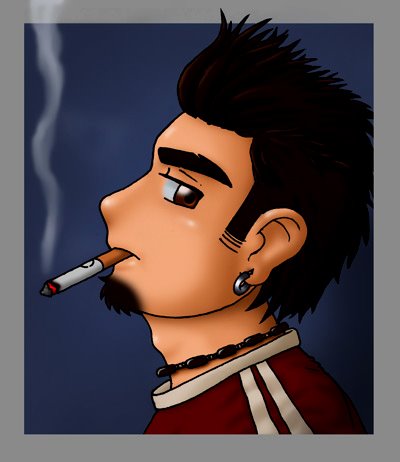Tuesday, March 01, 2005
PARALLELWISE TRIPS
Sometimes, the walls that divide The-Way-Things-Are from What-Could-Have-Been are so thin that I can almost see flashes of what my otherselves see. Feel what they're going through. Hear their thoughts in my mind.
So begins a series of glimpses. Of lives lived Now.
But not Here.
In truths that lie parallelwise.
STRAIN
Friday
8:48 a.m.
Somewhere Else
So begins a series of glimpses. Of lives lived Now.
But not Here.
In truths that lie parallelwise.
STRAIN
Friday
8:48 a.m.
Somewhere Else
Everyone learned a lot of new words over the past week. Fancy terms like Antigenic Shift.
Pandemic.
Highly Pathogenic.
However, after blood spewed from that field reporter's mouth while she was on national television, I realized that all these big words would be of no use in a matter of days. Or hours.
It was just as scientists and health workers had feared. Avian Flu Strain H5N1, first detected in the country when a family of 6 died after a lechong manok dinner last Saturday, had mutated. Instead of avian to human transmission, the virus now jumped from human to human.
Since people didn't have antibodies to counter something that infected poultry, fighting the original strain had been difficult enough. After the mutation, the rate of infection quadrupled in less than a day. Mortality now took place within minutes instead of weeks. And there are spine-chilling speculations that subsequent mutations would be airborne. Compared to this outbreak, the global flu epidemic La Grippe, which killed about 30 million people in the aftermath of the first world war, would look like a case of sniffles passed around a neigborhood.
Major cities in the National Capital Region had been quarantined for the last 27 hours. An hour ago, the quarantine was extended over the entire metropolis and the towns clustered around it. It wasn't clear how the army, certainly suffering casualties among their ranks, would ever manage to seal off 636 square kilometers of urban sprawl populated by 10 million people who won't even line up properly at the bus stops. But at least I'd be free to move around the metropolis, and find my way home without getting shot.
I convinced myself that my chances would be better if I walked home instead of getting into an enclosed public transport. Not that many of them were still plying the routes anyway.
About forty minutes after I left the office, with a rubbing alcohol-soaked handkerchief over my nose and mouth, I saw the looter.
I had halted in my tracks to assess a particular house a few meters away along my path.
Its gates were wide open for a car that never quite made it into the driveway. From where I stood, it looked like a bag of blood had burst inside the vehicle, and had spattered the windshield and rolled-up windows.
As I was preparing to cross the street, the looter emerged from the gaping gateway.
The looter wore an old basketball jersey, baggy shorts and grimy slippers. He cradled a DVD player in his arms, power cord dangling down to his knees.
He couldn't have been older than 16.
Before the looter could run off, he suddenly began coughing. His prize flew from his arms and shattered on the pavement when he reached up to clutch his throat.
His eyes were wide with terror as he fell on his knees. Gasping for breath, gripping his neck, he crouched over the metallic debris that had burst out of the player. Over the distant wail of sirens, I heard him wheezing.
Choking.
Sobbing.
Soon, he shall start coughing blood.
I pressed the handkerchief closer to my face and crossed the street.
Before the looter could run off, he suddenly began coughing. His prize flew from his arms and shattered on the pavement when he reached up to clutch his throat.
His eyes were wide with terror as he fell on his knees. Gasping for breath, gripping his neck, he crouched over the metallic debris that had burst out of the player. Over the distant wail of sirens, I heard him wheezing.
Choking.
Sobbing.
Soon, he shall start coughing blood.
I pressed the handkerchief closer to my face and crossed the street.

